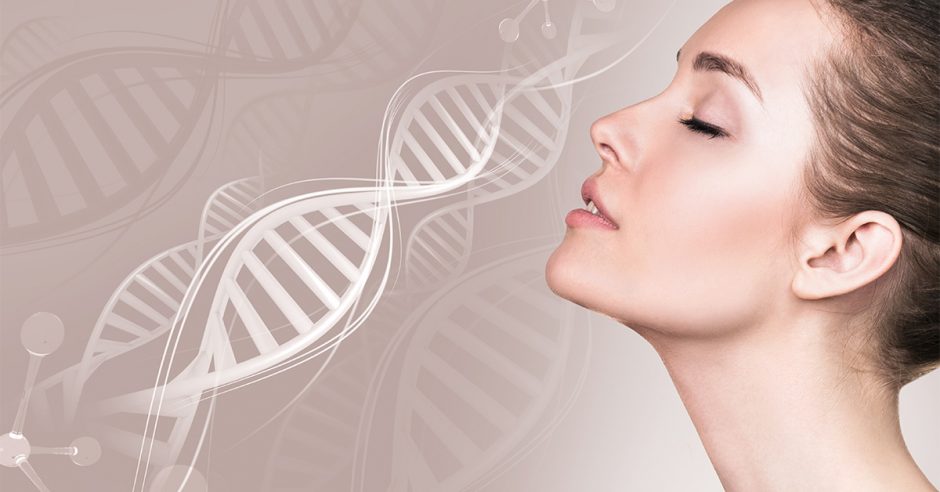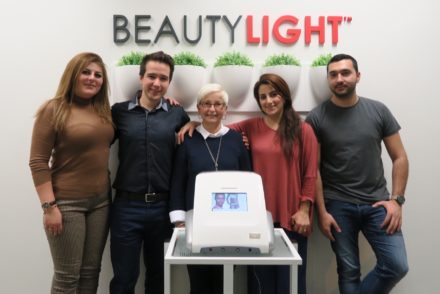Nowadays, it is very common to use beauty products that contain collagen. You may even take collagen supplements, powder or capsules. It is also common to see articles in the media or on social networks that recommend its benefits. However, few people know why it is so vital for the body. Discover with us why it is essential for our health.
What is collagen?
Collagen is an extremely important component of our body. It is the most abundant protein in the body (25%) and is the main structural component of our cells and tissues. It is found almost everywhere: in our skin, muscles, bones, blood vessels, ligaments, tendons, joints, hair, nails, eyes and even in the lining of our digestive tract. It is responsible for the production of collagen fibers that keep all tissues functioning properly, providing them with the elasticity and flexibility they need. Not only does collagen provide structural support to the body, but it also keeps our skin strong and plays an important role in bone and joint health. All these functions make collagen a key factor in the aging process.
What is its role for the skin?
Our skin is made of 70% collagen. It is the support of the skin because it provides the elasticity and firmness necessary for its proper functioning. In the dermis, the intermediate layer of the skin, collagen helps form a fibrous network of young cells called fibroblasts, on which new cells can develop. It also plays a role in the replacement and restoration of dead skin cells. Although our body produces this protein by itself, its production slows down with age. In fact, the human body naturally produces collagen until about the age of thirty. When this happens, signs of aging such as fine lines and wrinkles, joint pain or cellulite begin to appear. The skin becomes thinner and flabbier. It is also important to know that skin aging causes a decrease in collagen production, not its destruction. And although time is the main cause of collagen loss, there are many other factors that contribute to its deterioration.
What damages collagen?
Certain factors can reduce collagen levels in the body. Avoiding them can help keep your skin healthy longer. Here are some of the main ones:
- High sugar intake: A diet high in sugars increases the rate of glycation, a process in which blood sugars bind to proteins to form new molecules called advanced glycation end products (AGEs). These AGEs damage nearby proteins and can make collagen dry and weak.
- Smoking: Many of the chemicals in tobacco smoke damage the collagen and elastin in the skin. Nicotine also shrinks the blood vessels in the outer layers of the skin. This deteriorates the health of the skin by reducing its supply of nutrients and oxygen.
- The sun: Ultraviolet rays from sunlight cause collagen breakdown, which damages collagen fibers and provokes an exceeding cumulation of elastin. As a result, the skin does not rebuild itself properly and wrinkles start to appear.
- Autoimmune diseases: some autoimmune diseases cause antibodies to attack collagen.
- Genetic changes can also make collagen weaker, dysfunctional or mutated.
Can we stimulate collagen production?
After reading the previous paragraphs, you are in panic mode and wonder if it is possible to stimulate collagen production? There are indeed treatments to activate collagen production, such as Axis radiofrequency and Apilux 3G intense pulsed light (IPL) photorejuvenation:
- The Axis radio frequency emits electromagnetic waves that have the ability to penetrate the skin and increase the movement of ions within it. This has the effect of increasing the temperature inside the tissues, called the “endothermic” effect. The internal heat then activates the energy potential of each cell, resulting in significant biological changes, including improved skin quality. In the epidermis, there is a reduction in wrinkles that persists after the treatment. The effects of radiofrequency are also measured in the long run. The electromagnetic waves influence the connective tissue, which results in a firmer skin. The production of collagen and elastin fibers is naturally reactivated and, little by little, the quantity and diameter of these fibers increase. After only a few treatments, the skin recovers its tone, is more luminous, its texture is improved and wrinkles are reduced.
- Apilux 3G Intense Pulsed Light (IPL) photorejuvenation is an innovative skin care technology. It is a safe, non-invasive treatment that uses high-intensity pulses of light to effectively counteract photoaging of the skin. As the light passes through the epidermis, it penetrates to the dermis to stimulate dormant skin cells while promoting the development of new collagen and elastin. Thanks to a special filter inside the handpiece of the device, the light pulses emitted have the appropriate wavelengths to target different types of localized skin imperfections: wrinkles, pigment spots, redness, couperose and acne scars. The skin regains its suppleness and firmness, pores are minimised and wrinkles are reduced.
These two professional techniques are very effective and safe since they are performed with sophisticated devices such as the Apilux 3G and the Axis. We are talking about two state-of-the-art devices, proudly made in Canada and registered at Health Canada, which offer quick visible results.
Although the aging process leads to a natural decrease in collagen levels over time, there is no way to prevent this phenomenon. No one can escape it! However, we can protect our collagen fibers by avoiding smoking and excessive sun exposure, following an exercise program and a healthy diet. And to keep our youthful appearance, starting in our thirties, we can “boost” our production of new collagen fibers with the help of professional treatments!








No Comments